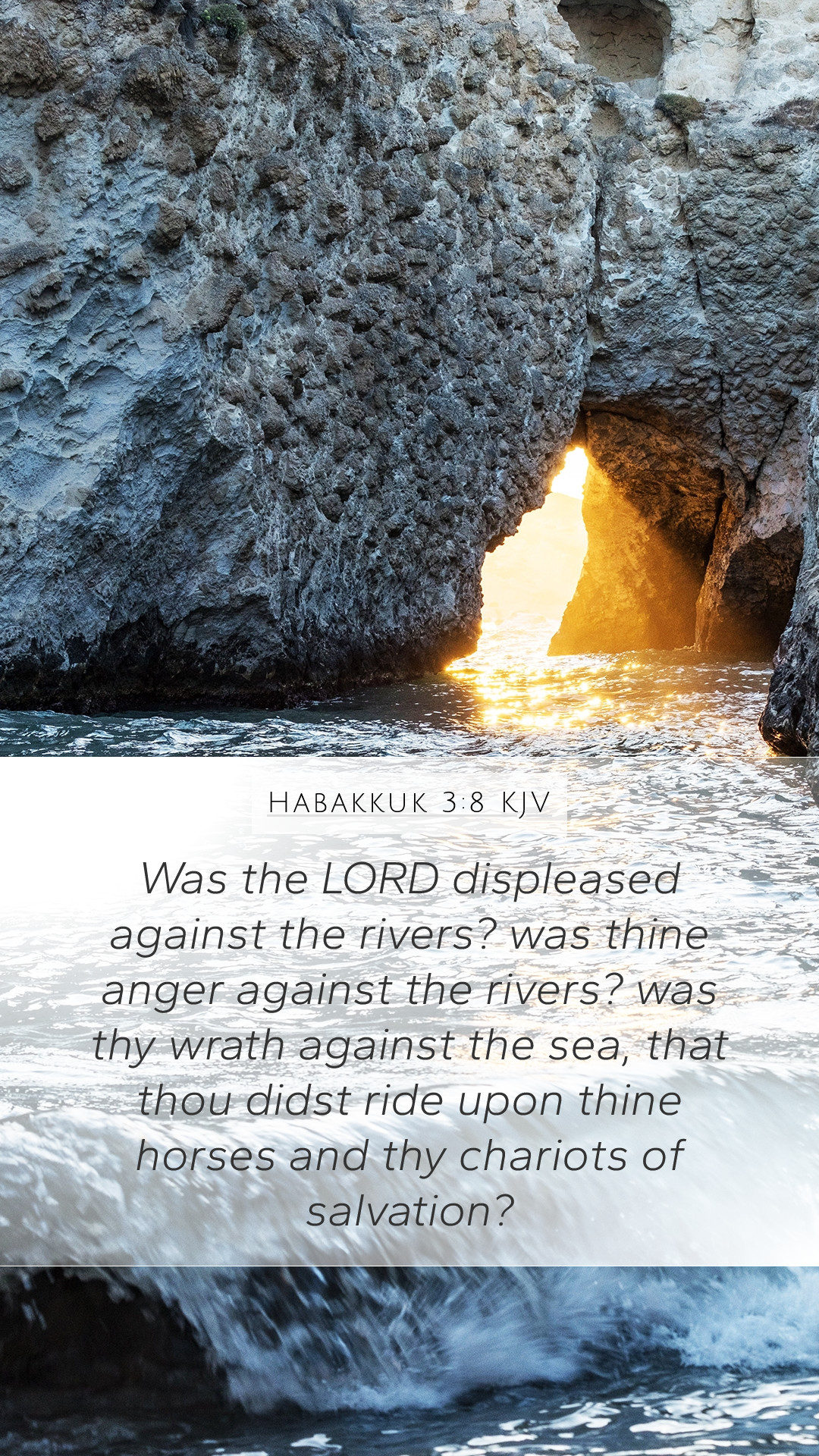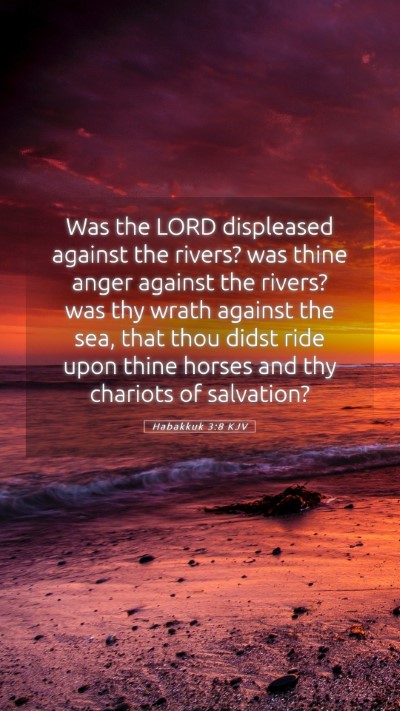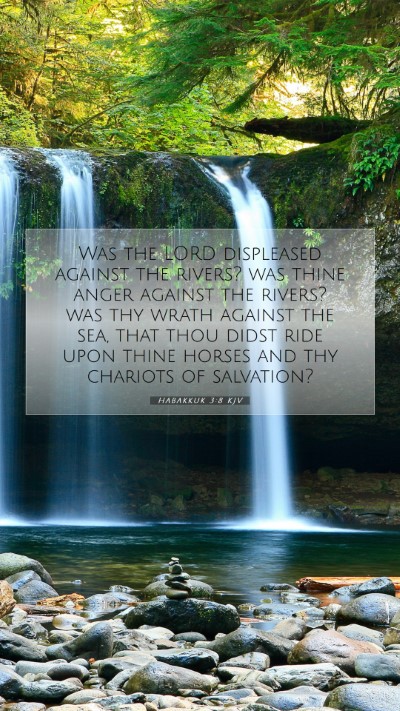Old Testament
Genesis Exodus Leviticus Numbers Deuteronomy Joshua Judges Ruth 1 Samuel 2 Samuel 1 Kings 2 Kings 1 Chronicles 2 Chronicles Ezra Nehemiah Esther Job Psalms Proverbs Ecclesiastes Song of Solomon Isaiah Jeremiah Lamentations Ezekiel Daniel Hosea Joel Amos Obadiah Jonah Micah Nahum Habakkuk Zephaniah Haggai Zechariah MalachiHabakkuk 3:8 Meaning
What is the meaning of Habakkuk 3:8?
Was the LORD displeased against the rivers? was thine anger against the rivers? was thy wrath against the sea, that thou didst ride upon thine horses and thy chariots of salvation?
Habakkuk 3:8 Bible Verse Meaning
Understanding Habakkuk 3:8
Verse: Habakkuk 3:8 - "Was the Lord displeased against the rivers? Was thine anger against the rivers? Was thy wrath against the sea, that thou didst ride upon thine horses and thy chariots of salvation?"
Overview of the Verse
Habakkuk 3:8 is a profound verse that reflects the prophet's dialogue with God, grappling with divine displeasure and justice against nature's elements. The verse questions the Lord's wrath, painting a picture of God riding upon the elements as a warrior, bringing to light themes of judgment, power, and salvation.
Bible Verse Meanings and Commentary
- Divine Sovereignty: The imagery presented in this verse emphasizes God's control over creation. Matthew Henry emphasizes that God's anger is not against nature itself but serves a greater purpose in His plans.
- Natural Elements as Agents: Adam Clarke notes how rivers and seas can symbolize chaos and turmoil, making God's intervention a display of His authority. The prophet acknowledges that God rides upon these forces, depicting His power over potential threats.
- Context of Judgment: Albert Barnes provides insight into the historical context, suggesting that this verse speaks to Israel’s deliverance from oppression, highlighting how God utilizes mighty acts to save His people}
- Imagery of Movement: The phrase "ride upon thine horses" symbolizes action and mobility, indicating that God actively engages in the affairs of humans and creation, providing reassurance of His presence and involvement.
- Questioning God's Intent: The series of questions raises an important theological issue: why does it seem that God is against His creation? Habakkuk's rhetorical questions allow believers to engage with the mystery of divine actions.
Thematic Insights
This verse invites readers to explore several themes within Scripture analysis:
- Justice and Mercy: Habakkuk grapples with the balance of God's justice and mercy; while He sometimes appears to act out of anger, there is always a redemptive purpose behind His actions.
- Trust in God's Plan: The prophet's inquiry reflects a deep yearning for understanding amidst uncertainty, prompting believers to trust that God's overarching plan is ultimately for their good.
- God’s Salvation: The mention of "chariots of salvation" reinforces the message that amid divine rage, there is also the promise of deliverance and rescuing purposes at work.
Application of the Verse
In applying this verse to daily life, believers can reflect on the following:
- Understanding Difficult Times: Just as Habakkuk sought understanding during turbulent times, individuals facing personal trials may find comfort in the promise of God's presence and purpose.
- Nature of God’s Wrath: Recognizing that God's anger does not equate to total abandonment helps believers rest in His protective and guiding hands even in scripture's broader narrative of discipline.
- Encouragement and Hope: God's actions, though sometimes viewed as punitive, ultimately lead to salvation, instilling hope that God is working positively through our struggles.
Cross References
- Psalm 77:16-20: Reflects God’s role over waters and nature.
- Exodus 15:8: Describes the Lord’s power over the sea during the Exodus.
- Isaiah 43:16: God as a path-maker through the waters.
Final Thoughts
Habakkuk 3:8 serves as a significant verse in understanding scripture's complexities surrounding judgment and divine intervention. Through its rich imagery and thought-provoking questions, readers are invited to delve into the nature of God’s relationship with creation, ultimately finding assurance in His mighty acts of salvation.


